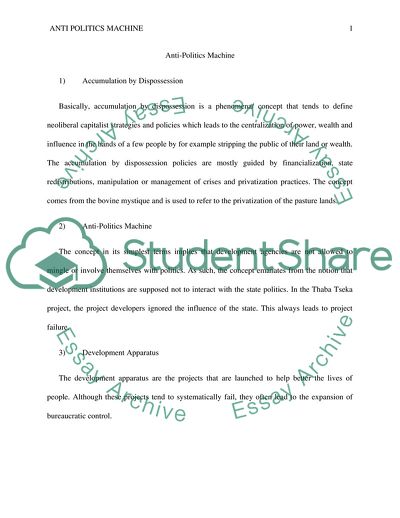Cite this document
(Anti-Politics Machine Essay Example | Topics and Well Written Essays - 1250 words, n.d.)
Anti-Politics Machine Essay Example | Topics and Well Written Essays - 1250 words. https://studentshare.org/politics/1849094-you-think
Anti-Politics Machine Essay Example | Topics and Well Written Essays - 1250 words. https://studentshare.org/politics/1849094-you-think
(Anti-Politics Machine Essay Example | Topics and Well Written Essays - 1250 Words)
Anti-Politics Machine Essay Example | Topics and Well Written Essays - 1250 Words. https://studentshare.org/politics/1849094-you-think.
Anti-Politics Machine Essay Example | Topics and Well Written Essays - 1250 Words. https://studentshare.org/politics/1849094-you-think.
“Anti-Politics Machine Essay Example | Topics and Well Written Essays - 1250 Words”. https://studentshare.org/politics/1849094-you-think.


